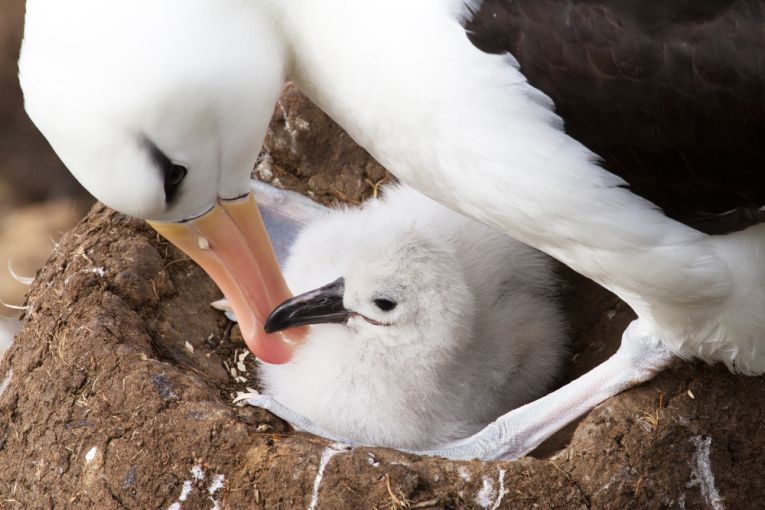The albatross is perhaps one of the iconic birds, with its traditional mythology among ancient and modern sailors of different views! The personality of the bird is likely to be well-developed, given the great life-span, the niche as a top marine predator and its tremendous journeying across expanses of ocean.
The authors of this paper took advantage of the foraging variation and the birds' variable reaction to a large pink volleyball. It's published by PLOS ONE as: "Foraging and Fitness Consequences in a Long Lived Seabird".
Shy and bold black-tailed gulls (Larus crassirostris )have been studied as well as the albatross, Diomedes exulans. This study by Samantha C. Patrick and Henri Weimerskirch uses the Kerguelen Islands' black-browed albatross, Thalassarche melanophrys in the Antarctic. A sub-colony at the study area off Cañon des Sourcils Noirs had 200 nests that proved suitable for the investigators as it had been monitored from 1979. Breeding data was only available from 1988.
Foraging as a personality trait is a debateable measure, but it certainly constitutes a repeated set of actions by individual birds. It is critically linked with success in producing the single annual egg and the rearing of the chick. Females especially showed up as being successful when bold in their hunting and foraging travels. Competition would improve that reproductive success in years of shortage as shy females would remain near the productive continental shelf while others would boldly venture further to find food. Male birds seemed more successful when they were shy, but bold individuals were more successful in good years.
Shyness is associated in this species with foraging further from the colony where there is less competition. Memory is also involved more when individuals are shy as these birds don't follow the routine forage of other individuals and have to remember where their own feeding spots are. With a very varied diet, the species needs to be investigated using stable isotope analysis on each individual diet. Perhaps the personality will determine diet.
The authors are to be congratulated on discovering novel personality investigation techniques beyond the usual mammal areas and in the wild Kerguelens. The work will lead us all to appreciation of a different species, help conservation in general and perhaps develop science in different directions.










